Speakers
#LISTEN TO THE
Event Speakers
We invite you to listen to our keynote speakers, sharing their expertise and insights to transform healthcare and medical sectors to advanced level. It is their commitment that allows us to best share the knowledge of Pathology.

Dr. Guang-Yu Yang
Director of GI/Liver/Pancreas Pathology, Northwestern University, USA
Presentation Title: Diagnostic Challenges in Pancreatic Biopsy Specimens
Dr. Guang-Yu Yang is a board certify-d AP/CP pathologist with subspecialty in GI/liver/pancreatobiliary pathology. He is a tenured professor in department of pathology and hold an endowed professorship – Joseph C. Calandra Research Professor in Pathology and Toxicology. He serves as the vice chair and director of anatomic and surgical pathology, department of pathology, northwestern university Feinberg school of medicine, and is an experienced/consulting senior GI/surgical pathologist. Dr. Yang is a physician-scientist with research efforts and focus on the molecular pathogenesis of chronic active inflammatory digestive disease including inflammatory bowel disease and pancreatitis and inflammation-mediated carcinogenesis, and on interception of chronic active inflammatory bowel disease-induced carcinogenesis.
Over the past 30 years, Guang-Yu Yang has achieved tremendous clinical and research success in the field of GI/liver/pancreatobiliary pathology and of chronic inflammation-induced carcinogenesis and its chemoprevention. He is the author of 212 peer-reviewed publications and 7 book chapters.
Guang-Yu Yang received his MD and PhD degrees from China Medical University in Shenyang, China. He completed his pathology residency at New York University Medical Center followed by the John H. Yardley Fellowship in Gastrointestinal Pathology at Johns Hopkins Medical School/Hospital, Johns Hopkins University.
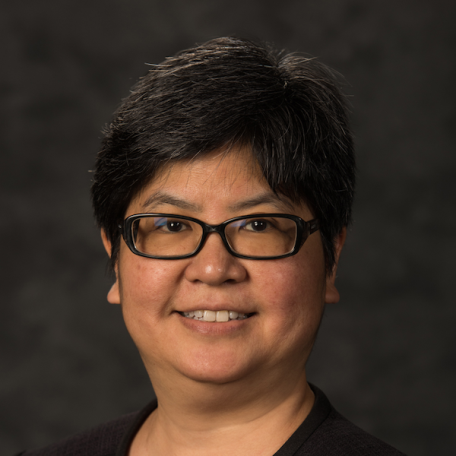
Julie Feldstein, MD
Chief Pathologist, Histowiz, USA.
Presentation Title: The Power of Innovation: Unleashing Potential Through Pathology
My training started as a Howard Hughes Medical Student Researcher and Continued Awardee, Anatomic Pathology resident then Hematopathology fellow at the National Cancer Institute, staff attending at Memorial Sloan Kettering for 16 years, Mount Sinai Health System for 6 years, and now currently serve since November 2021 as Chief Pathologist at Histowiz. I manage a digital pathology network of 135 pathologists and report out a range of research studies from morphologic, immunophenotypic biomarker, and molecular assessment on pre-clinical and clinical research models. I currently serve on the ASH Scientific Committee for Hematopathology and Clinical Laboratory Hematology, USCAP Mentoring Academy, Pathology Outlines editor, and CAP NYS HOD.
My research interests include immune oncology, hematopoiesis, neoplasia, hematopathology, digital pathology, augmented AI, spatial omics in tissues and cytology specimens such as organoids etc.
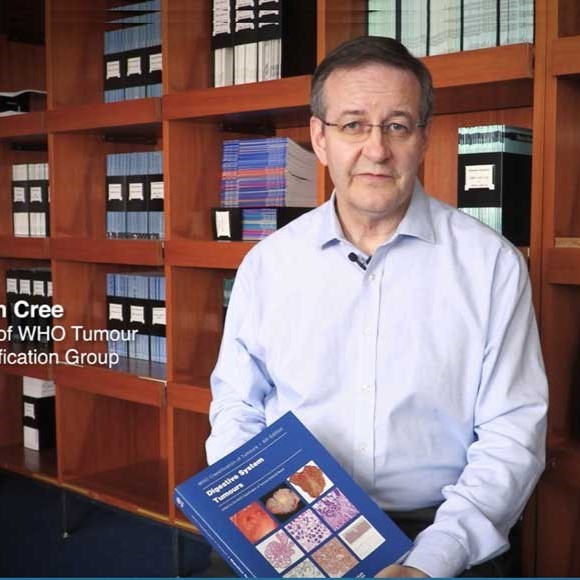
Prof. Ian A Cree PhD, FRCPath, FRCPI (Hon), ALS
Honorary Professor of Pathology, University College London, UK.
Presentation Title: Early Cancer Detection
Ian Cree is a pathologist, recently retired from his post as an international civil servant, based at the International Agency for Research on Cancer (IARC) in Lyon where he led the WHO Classification of Tumours, responsible for the ‘WHO Blue Books’ and the Evidence Synthesis and Classification branch, responsible for the IARC Monographs and the IARC Handbooks. He is an Honorary Professor of Pathology at the Institute of Ophthalmology, part of University College London; and at the University of Coventry. He has previously held posts as the foundation Yvonne Carter Professor of Pathology at Warwick Medical School, Consultant Pathologist at University Hospital Coventry and Warwickshire, Professor of Histopathology at the University of Portsmouth and as the founding Director of the Efficacy and Mechanism Evaluation (EME) programme for the UK National Institute of Health Research (NIHR) Evaluation Trials and Studies Coordinating Centre. Until April 2015 he was a member of the UK National Institute of Clinical Excellence (NICE) Diagnostics Advisory Committee, joining at its inception. He was founding Chair of the Inter-specialty Committee on Molecular Pathology for the Royal College of Pathologists (2011 – 2015) and chaired its Research Committee (2015 – 2017). Trained as a general pathologist with a PhD in immunology, Ian’s research career has been based on investigating disease mechanisms to improve diagnosis and treatment, particularly for cancer. He has a developed a number of molecular diagnostics methods and led the UK Early Cancer Detection Consortium (2012 – 2017). He has a major interest in the management of translational research. He has published more than 300 papers, and 11 books, and was recently awarded honorary fellowship of the Royal College of Physicians of Ireland.
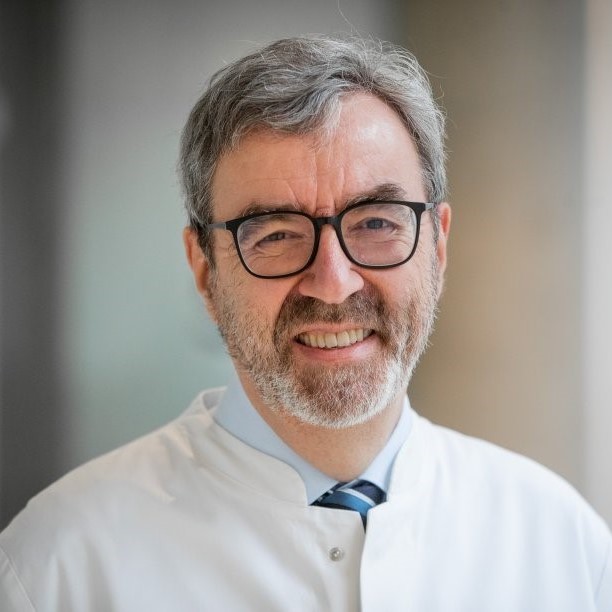
Dr. German Ott
Professor Institut für Klinische Pathologie, Robert-Bosch-Krankenhaus, Germany.
Presentation Title: What is new in the Classification of Malignant Lymphomas in 2025? – A practical guide
German Ott heads the Department of Clinical Pathology at the Robert Bosch Hospital, Stuttgart and conducts research at the Margarete Fischer-Bosch Institute for Clinical Pharmacology, Stuttgart and at the University Hospital of Würzburg.

Dr. Anoop Bansal
Lead Scientist, Digital pathology, IQVIA, Brazil.
Presentation Title: AI for Immuno-Oncology Pathology: Discovery & Diagnostics
Dr. Anoop Bansal is Lead for digital pathology at IQVIA, he has been responsible for delivering strategic and tactical activities for the evolving portfolio, including evidence generation and educational initiatives. His 15 years of experience drives to built and led a team that successfully executed significant Phase 3 launches and developed pre-launch activities for new assets. His role involved extensive external engagement and preparation for regulatory interactions. He has been recognized both internally and externally as a strategic leader, cross-functional partner, and content expert in prostate cancer. He thoroughly enjoyed this role, particularly the close collaboration with cross-functional partners in both the Oncology Business Unit and R&D, working on asset and tumor activities. Prior to IQVIA he worked for Bristol Myers Squibb, Diagcor Bioscience and Novotech.

Prof. Tarek A. Bismar, MD
Professor, Departments of Pathology and Laboratory Medicine, University of Calgary, Canada.
Presentation Title: Prostate Cancer Grading and Genomic Update: A path toward developing molecular and prognostic signatures
Dr. Bismar is currently a Professor at the University of Calgary and Adjunct Professor in the Department of Oncology at McGill University. While he was at McGill University, his service achievement is the establishment and participation of Urological Oncology Rounds at the Jewish General Hospital, as well as working as the primary pathologist for signing out genitourinary oncology cases. He was also a consultant for genitourinary pathology and oncology cases for various department members. His research achievements include the directorship and establishment of the tissue microarray facility at the Lady Davis Institute with the support of Dr. Gerald Batist. His accomplishments also include the establishment of several tissue micorarrays for prostate cancer with detailed clinical and pathological outcomes. These arrays were the first at McGill University and Dr. Bismar has been utilizing them for various collaborations with several investigators in the Department of Oncology. The use of these arrays has lead to a number of publications and grant submissions with members of the Department of Oncology.
Dr. Bismar is still actively involved in several collaborations with members of the Department of Oncology at McGill University and also supports translational research in the fields of breast and prostate cancer. To date, these collaborations have generated more than 7 papers with several others forthcoming. These collaborative studies have been published in several high impact journals, including Journal of Experimental Medicine, Cancer Research and Clinical Cancer Research. Dr. Bismar’s efforts also support various department members in securing external funds through the addition of his expertise in utilizing high throughput tissue microarrays to support basic science proposals.
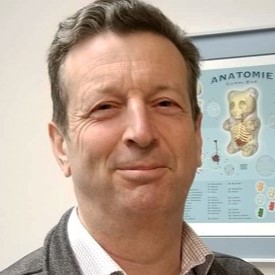
Dr. Blake Gilks
Professor Emeritus, Dept of Pathology and Laboratory Medicine University of British Columbia, Vancouver Canada.
Presentation Title: Integration of Molecular Pathology into Practice: the example of endometrial carcinoma
Dr. Blake Gilks is a Professor Emeritus in the Dept of Pathology and Laboratory Medicine, at the University of British Columbia, in Vancouver Canada, and does clinical service work in the Division of Anatomic Pathology at Vancouver General Hospital. He leads a research program focused on gynecological cancers and was lead pathologist on studies refining the histotype-based classification of ovarian carcinoma, molecular classification of endometrial carcinoma, and etiology-based classification of vulvar carcinoma. He is a former president of the International Society of Gynecological Pathologists. He is an author of more than 500 peer review publications, cited more than 50,000 times.
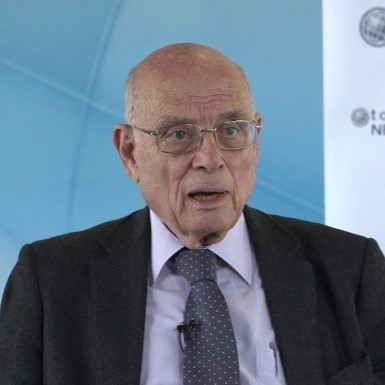
Professor emeritus Amos D Korczyn CONy President
Department of Neurology, Tel Aviv University, Israe.
Presentation Title: Is Alzheimer’s disease inevitable?
Professor Korczyn graduated from the Hebrew University–Hadassah Medical School in Jerusalem in 1966 (MD), where he also received an MSc degree in pharmacology (cum laude) in 1966. He trained in neurology at Beilinson Hospital and at the National Hospital for Nervous Diseases, Queen Square, London. He was the Chairman of the Department of Neurology at the Tel-Aviv Medical Center from 1981 until 2002, and the incumbent of the Sieratzki Chair of Neurology at Tel-Aviv University, 1995-2010. Professor Korczyn has a particular interest in neurodegenerative diseases. He has authored or co-authored over 700 articles in peer-reviewed journals, as well as many chapters in books. He edited several books and Special Issues in Journals, and is Regional Editor of the Journal of Alzheimer’s Disease. He is or has been an Editorial Board member of 20 international journals, and organized several neurological conferences, mainly in the field of dementia, Parkinson’s disease and other degenerative brain disorders, as well as CONy – the International Congress on Controversies in Neurology, and has organized the Mental Dysfunction in Parkinson’s disease congresses since 1993. Professor Korczyn served on advisory boards in several drug discovery programs.
Professor Korczyn is the Chairman of the Scientific Medical Board of the Israeli Alzheimer’s disease association (EMDA), member of the SAB of Alzheimer Disease International (ADI), and has been the chairman of the WFN Research Committee for Clinical Neuropharmacology.
Professor Korczyn is an honorary member of the neurological societies of Israel, Serbia, Poland, Russia, and Romania.
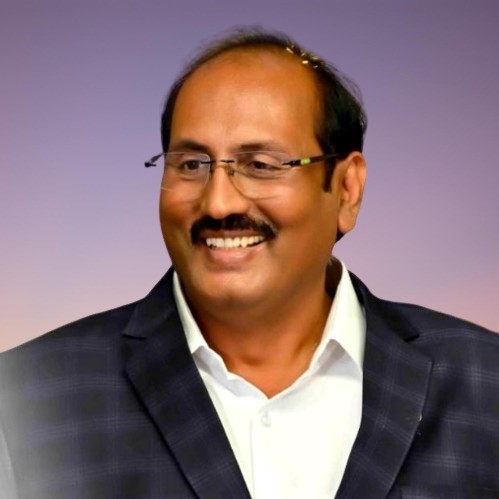
Dr.Laxmana Swamy
Lead Pathologist, Lieca Bio Systems, India.
Presentation Title: DICOM Format & Protocal Standartization: Standards for Digital Pathology
Dr. laxmana Swamy is a Lead Pathologist at Lieca Bio Systems He specializes in medical affairs related to digital pathology and anatomic pathology, with a particular focus on oncopathology, multiplex imaging, and AI in pathology. With over 21 years of experience as a consultant histopathologist and pathologist post-M.D., he has handled a wide variety of complex cases at global reference labs and top-rated diagnostic labs, as well as multi- and super-specialty hospitals with dedicated cancer care units.
Dr. laxmana Swamy is passionate about advancing precision medicine and companion diagnostics (CDx), he leverages his expertise in scoring systems for various PDL assays, CAP guidelines, international standards, and IHC reporting with over 200 markers. He collaborates with a global team of experts in AI and digital pathology, reviewing cases from different geographic regions and contributing to the development and validation of innovative solutions that enhance the quality and efficiency of pathology services.
Before joining Lieca Bio Systems he worked for Poona Hospital & Research Centre, Biogenex Life Sciences and Syngene International Limited.
